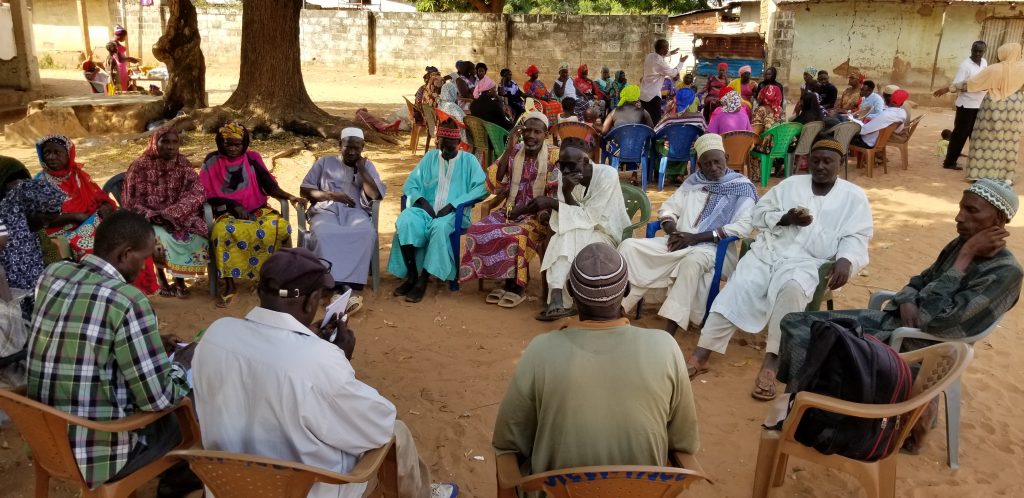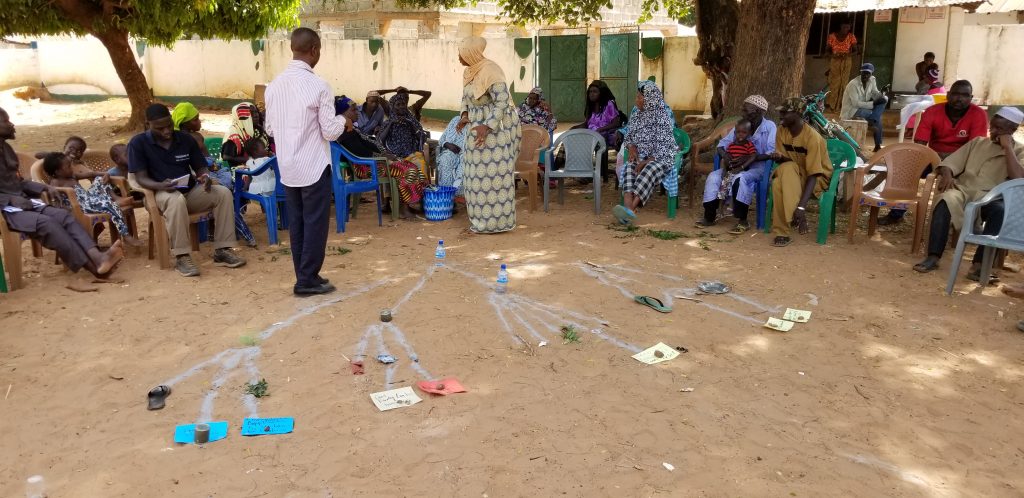
Capacity development, including at the local level, is an essential enabling factor for National Adaptation Plan (NAP) processes to be gender-responsive. To build local capacities on gender, climate change adaptation and the linkages between the two, a training of trainers (ToT) was organized in Jenoi, The Gambia, in November 2019. Hosted by the Gambian Ministry of Environment, in partnership with the NAP Global Network and the FAO-UNDP Integrating Agriculture in NAPs programme (NAP-Ag), the workshop brought together representatives from government and non-government bodies, including the Departments of Agriculture (DoA), Community Development (DCD), Water Resources (DWR) and Forestry.
The ToT was designed to facilitate gender-responsive adaptation planning at sub-regional and community levels as an input to the NAP process. It aimed to provide key actors in local planning with the necessary skills to deliver training for local stakeholders, including both women’s and farmer’s groups. This training will strengthen the capacities of government staff, NGOs and community-based organizations to integrate gender and adaptation in planning. This supports the NAP process objective to integrate adaptation in development planning across levels, ensuring that these efforts also address gender considerations.
Following introductory presentations on The Gambia’s NAP process (as well as climate change and gender concepts) the ToT focused on developing practical skills, enabling participants to view climate change challenges through a gender lens, to use Climate Vulnerability and Capacity Analysis (CVCA) tools in planning and to identify adaptation priorities through a gender-responsive process. The workshop adopted an adult learning approach based on participants’ own experiences and knowledge from their planning-related work and other areas of their lives. Participation was encouraged through exercises customized to promote cooperation and focused on the practical application of community-level analysis and planning tools.

The ToT was lively, with spirited and animated discussions. It involved community practice sessions, where participants worked with members of a nearby community to facilitate identification and prioritization of adaptation options. This provided participants with the opportunity to prepare for work in communities based on real-world experiences. After four days of intensive training, the participants have the tools and skills to provide training for local stakeholders on integrating gender-responsive adaptation into planning. This will help ensure that the NAP process is informed by gender-responsive local adaptation plans.
Technical assistance for the Gambian government to organize the ToT was delivered via the NAP Global Network’s Country Support Hub. In addition, a newly-launched training guide by FAO and UNDP, Gender in adaptation planning for the agriculture sectors, served as a basis for the technical content of the workshop.
Learn more about gender-responsive NAP processes:
- Toolkit for a Gender-Responsive Process to Formulate and Implement National Adaptation Plans (NAPs)
- Read the UNDP-FAO Integrating Agriculture in National Adaptation Plans (NAP-Ag) programme’s brief, Promoting gender-responsive adaptation in the agriculture sectors: Entry points within National Adaptation Plans
- Conducting Gender Analysis to Inform National Adaptation Plan (NAP) Processes: Reflections from six African countries
- Infographic | Addressing Gender Equality in Climate Change Adaptation
- Infographic | Acting on the Gender Action Plan (GAP)